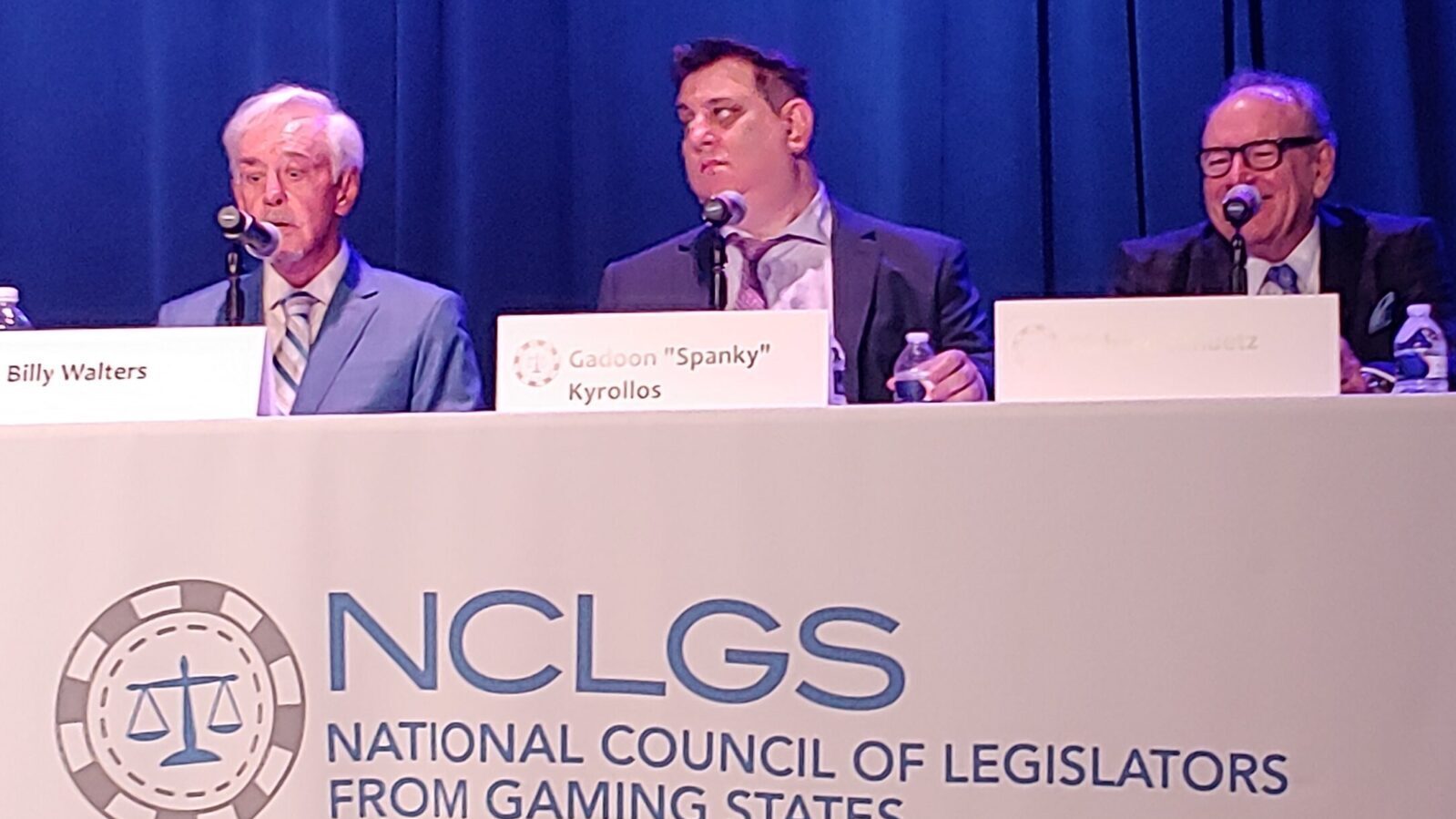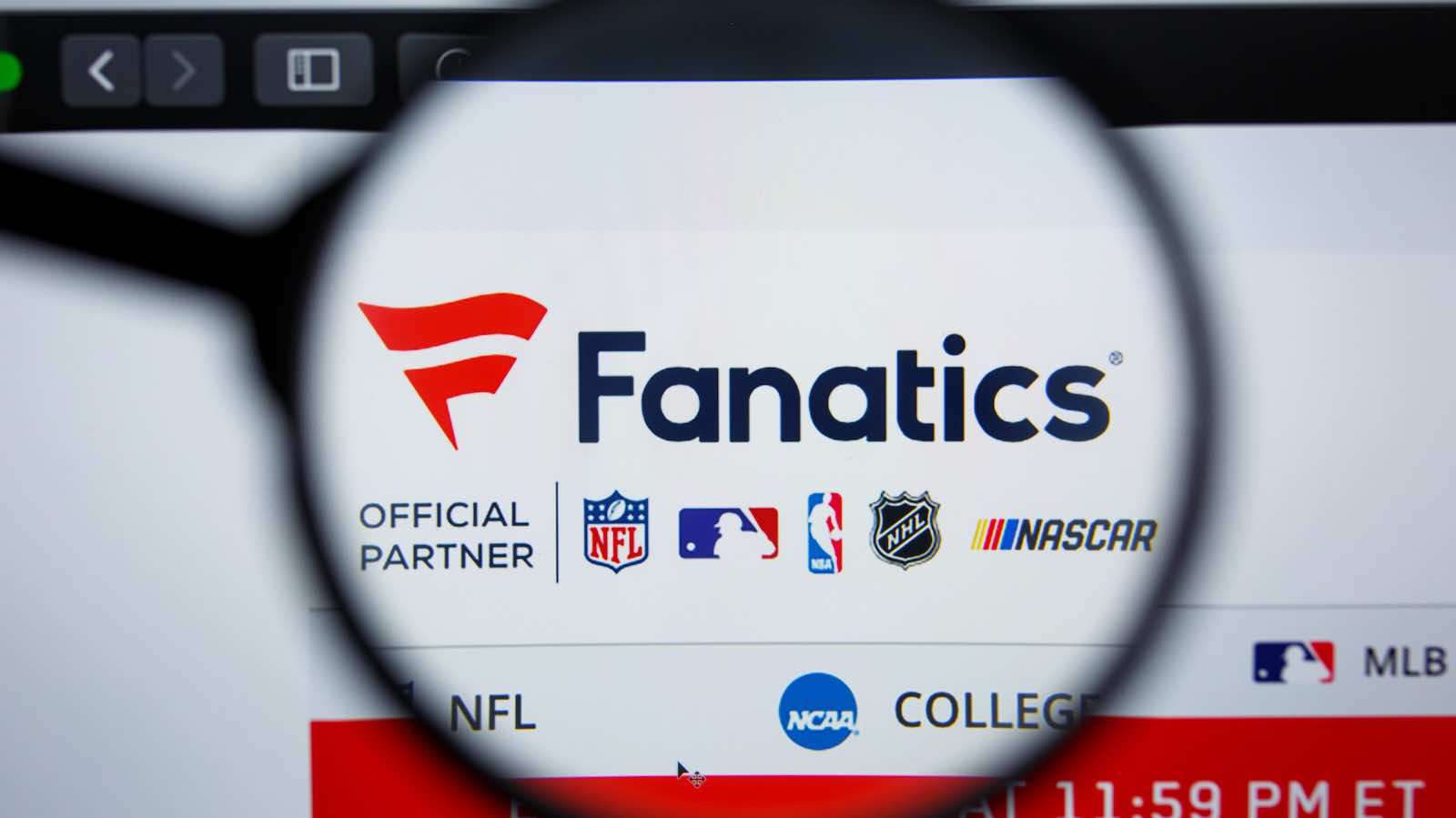Sports Betting Pros Call Out Regulated Industry For Lack Of Transparency And Fairness
“If you’re good at something, you’re not supposed to be penalized for it," said Gadoon "Spanky" Kyrollos. "That’s not the American way."
3 min

Billy Walters and Gadoon “Spanky” Kyrollos, two of modern America’s most prominent and successful sports bettors, hammered the need for more “transparency” from sportsbook operators whom they widely criticized in a panel presentation Friday to state lawmakers and regulators.
Walters and Kyrollos joined Richard Schuetz, a veteran of operating and regulating casinos (and frequent Casino Reports contributor), in speaking on bettors’ behalf at the National Council of Legislators from Gaming States (NCLGS) summer meeting in Pittsburgh.
The three are collaborators in organizing a new nonprofit group, American Bettors’ Voice, to advocate and lobby for bettors, and NCLGS President Shawn Fluharty noted how rare and important it is to obtain input on behalf of sportsbook consumers at a large, industry-related event such as the council’s major event.
Asked repeatedly about what problems need to be addressed in the six years since PASPA was repealed and widespread legalization began, enabling millions of Americans to bet on sports in a way they never had before, both Walters and Kyrollos condemned common sportsbook practices such as limiting successful players and withholding true odds information.
“We should have transparency, and right now we don’t have transparency,” said Walters, 78, who became famous decades ago for sports betting success in Las Vegas. His book, Gambler: Secrets from a Life at Risk, became a best-seller.
Kyrollos, who organizes Bet Bash, an annual conference attracting bettors from around the country, objected to how common it is for sportsbooks to limit or refuse bets from savvy customers and take higher and higher wagers from those who do poorly and can become problem gamblers.
“If you’re good at something, you’re not supposed to be penalized for it. That’s not the American way,” Kyrollos said.
The focus on banning and bankrupting
The panel generally criticized what was termed as European-originated “ban or bankrupt” practices employed by major sportsbooks, where they expel the customers who know the most and rely on the worst players to drive profits.
That’s quite different from what Schuetz described in getting to know Walters in Las Vegas decades ago, when Schuetz was a Stardust Casino executive. Walters was already known as a big winner, which Schuetz said did nothing to discourage the casino’s sportsbook from taking his action with high limits. It would use his leanings to help alter its odds.
“Billy was one of our most important customers,” Schuetz explained. “When Billy made a bet, we had more information. Billy was smarter than us. … Billy gave us information, and once we had that information, we were in a much better position to manage risk. That’s what it was all about.”
Walters said Las Vegas casino mogul Jack Binion utilized him in the same manner, welcoming his large bets. The modern national and international sportsbooks, he said, seem to lack skilled bookmakers and are unwilling to unable to operate in a similar manner.
“If you have an operator who can’t manage his business and be profitable with transparency, with posting the limits, treating everyone equally, then he probably shouldn’t have a license,” Walters said. “If you don’t have the expertise to operate a sportsbook and treat everyone fairly who’s not violating the rules, then maybe you don’t have the expertise to be a sportsbook writer.”
Newer bettors particularly vulnerable
The panelists emphasized they were speaking not just on behalf of professional bettors like themselves, but for the mass of participants who fill the data bases of the digital sportsbooks and can face their own penalties for success.
The panel did not include any representatives of sportsbooks, but the issue of betting limits has been gaining public attention of late, with Massachusetts regulators attempting to have operators there explain and defend their policies on bet limits.
Walters said one of the issues that arises from having a flood of new bettors from legalization is they can be taken advantage of by the operators.
“If you do a survey of what odds you think you’re getting, the majority or most every one of them will tell you they think they’re laying 11/10, because that’s been the standard,” but he said the popular new parlay opportunities attract bets at far worse odds that aren’t disclosed.
“Millions don’t know what risk they’re taking, especially with the young people out there,” Walters said.
Kyrollos added, on the subject of limits, that sportsbooks seem able to operate far differently from other forms of legal gambling.
“You walk into any casino and every table game, every slot machine [has a clear maximum bet]. The sportsbook industry does not have that — all limits are individualized, and that shouldn’t happen.”
He suggested that too many operators are allowed to have the philosophy of, “If I lose to this person, I’m just going to kick him out. … That if they don’t beat every customer, they’re not doing it right.”
Walters noted how happy he was when the PASPA repeal brought opportunity across the United States for others to engage in what he’d been enjoying throughout his adult life, but due to the operators’ tactics and regulators’ lack of effort to rein them in, legalization has fallen short of his hopes.
“I want to make sure we’re achieving what we set out to achieve — that’s a win-win-win for everyone: the sports bettor, the operator, and the regulator,” he concluded. “Regulators need to be sure everyone is treated fairly.”





